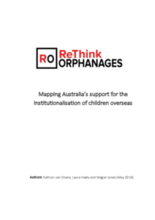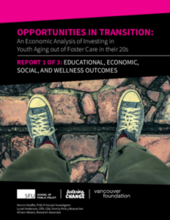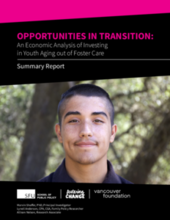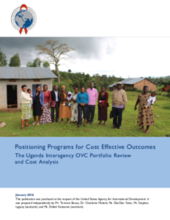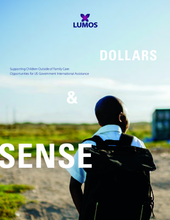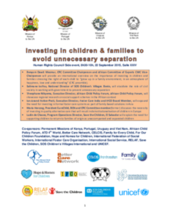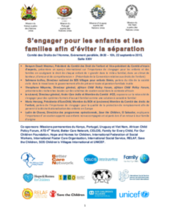Displaying 131 - 140 of 189
Using unique 5-year longitudinal data on Korean children in group homes and those under institutional care, this paper compared the medium-term cost-effectiveness of group homes and that of institutional care facilities in terms of developmental outcomes.
This report “seeks to map Australia’s contribution to residential care institutions for children overseas across a number of sectors and identify opportunities for strategic engagement with various stakeholders in the Australian context.”
This report is the second in a series of reports exploring the economic consequences and issues for youth aging out of care in British Columbia, Canada. The purpose of this second phase report is to describe and, to the extent possible, provide estimates of the magnitude of these costs.
The purpose of this phase 1 report is to document what is known about the resulting educational attainment, economic, social and wellness outcomes for youth aging out of care as compared to the general population in British Columbia, Canada.
This report is the third and final in a series of reports exploring the economic consequences and issues for youth aging out of care in British Columbia, Canada. The purpose of the report is to estimate the incremental costs of support measures that can improve outcomes and to compare these costs to the benefits they may generate.
This series of reports offers important new insights into the economic consequences and issues for youth aging out of care in British Columbia, Canada.
The purpose of the review is to provide evidence to support planning that will maximize the impact of the PEPFAR Uganda OVC portfolio.
To better understand the impact of donor funding, Lumos is conducting a five-part research study to examine the role of donors across a variety of sectors in propagating, supporting or ending the institutionalization of children. This report on US government funding is the first in the series.
This Human Rights Council Side event included presentations on family separation in the African, Asian, European, and Latin American contexts.
This Human Rights Council Side event included presentations on family separation in the African, Asian, European, and Latin American contexts.

